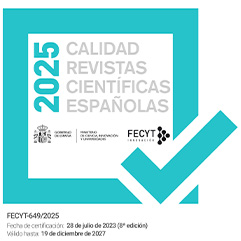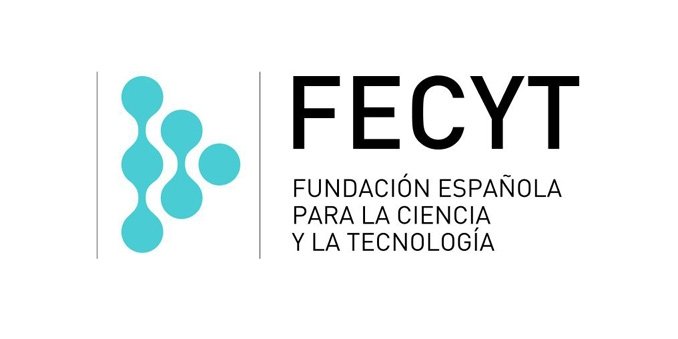Ted Talks como recurso docente en la asignatura de “Economics of social expenditure” del grado en Economía
DOI:
https://doi.org/10.17561/ree.n1.2024.8206Palabras clave:
Ponente Invitado, Propuesta docente, TED Talks, economics of social expenditureResumen
Objetivo: La pandemia puso de manifiesto la necesidad de reforzar otro tipo de métodos docentes como son la docencia virtual, la gamificación o los formatos asíncronos. Nuestro estudio analiza la experiencia de la aplicación de la figura del ponente invitado asíncrono con el uso de las TED Talks en la asignatura de “Economics of Social Expenditure” del Curso de Tercero del Grado en Economía.
Métodos: Al final de cada TED Talk se le propone al alumnado una serie de actividades para analizar el rendimiento y la utilidad de la actividad en la aceptación y comprensión de los conceptos principales que han sido considerados en la evaluación continua. Además, el estudiantado tiene que responder a un cuestionario anónimo sobre su grado de satisfacción con la actividad.
Resultados: Tanto los cuestionarios como las calificaciones nos muestran los siguientes resultados: 1. Una alta satisfacción con las actividades propuestas. 2. Un incremento en la participación e implicación del estudiantado en el desarrollo de la asignatura. 3. Una mejora en la aceptación y asimilación de conceptos de la asignatura que derivan en una mejora de las notas finales de la asignatura. 4. Mejora de las competencias no cognitivas (soft skills) como son el trabajo en equipo o el pensamiento crítico.
Conclusiones: Nuestra experiencia prueba la necesidad de seguir apostando por este tipo de metodologías que serían extrapolables a otras asignaturas. Así, no solo se tendría en cuenta la opinión del alumnado para mejorar los resultados docentes, a su vez pues nos permitiría configurar una base de datos para validar econométricamente esta experiencia docente.
Descargas
Referencias
Becker, W. E. (2000). ‘Teaching Economics in the 21st Century’, Journal of Economic Perspectives, 14(1), pp. 109–119. doi: 10.1257/jep.14.1.109.
Bustamante, J. C., Segura-Berges, M., Lizalde-Gil, M. and Peñarrubia-Lozano, C. (2022). ‘Qualitative Analyses of e-Learning Implementation and Hybrid Teaching during the COVID-19 Pandemic at Spanish Universities’, Sustainability, 14(19), p. 12003. doi: 10.3390/su141912003.
Cantarero Prieto, D., Lanza-León, P., Moreno, P., Blázquez-Fernández, C., Lera, J., González-Diego, FJ. and González-Rodriguez, I. (2023). ‘Change in eating habits during the Spanish COVID-19 pandemic lockdown: evidence for a sample of university community’, PeerJ, 11, p. e14244. doi: 10.7717/peerj.14244.
Carducci, F. (2017). ‘TED talks in the sciences: a CLIL experience in higher education’, in, pp. 3164–3169. doi: 10.21125/edulearn.2017.0167.
Choirunnisa, M. R. and Sari, F. M. (2021). ‘TED Talks Use in Speaking Class for Undergraduate Students’, Jambura Journal of English Teaching and Literature, 2(1), pp. 35–40. doi: 10.37905/jetl.v2i1.7319.
DaVia Rubenstein, L. (2012). ‘Using TED Talks to Inspire Thoughtful Practice’, The Teacher Educator, 47(4), pp. 261–267. doi: 10.1080/08878730.2012.713303.
Diez-Minguela, A. and Añon-Higón, D. (2015). ‘TED-Ed: una herramienta online para fomentar el auto-aprendizaje’, RIDU - Revista d’innovació Docent Universitària2, 7. doi: 10.1344/RIDU2015.7.2.
Echeverría, M.-P. P., Pozo, J.-I. and Cabellos, B. (2022). ‘Analysis of Teaching Practices During the COVID-19 Pandemic: Teachers’ Goals and Activities in Virtual Classrooms’, Frontiers in Psychology, 13. doi: 10.3389/fpsyg.2022.870903.
García-Campanario, I., Vanlinthout, L. E., Toro, R., Mangas, A. and Lagares-Franco, C. (2022). ‘Impact of COVID-19 on Physical Activity and Lifestyles in Post-Confinement Sports Science Undergraduates’, International Journal of Environmental Research and Public Health, 19(15), p. 9115. doi: 10.3390/ijerph19159115.
Garvey, A. M., Jimeno-Garcia, I., Otal-Franco, S. H. and Mir-Fernandez, C. (2021). ‘The Psychological Impact of Strict and Prolonged Confinement on Business Students during the COVID-19 Pandemic at a Spanish University’, International Journal of Environmental Research and Public Health, 18(4), p. 1710. doi: 10.3390/ijerph18041710.
Geerling, W. (2012). ‘Bringing the “Dismal Science” to Life: Teaching Economics Through Multimedia’, International Review of Economics Education, 11(2), pp. 81–90. doi: 10.1016/S1477-3880(15)30010-4.
Guardia, J. J., del Olmo, J. L., Roa, I. and Berlanga, V. (2019). ‘Innovation in the teaching-learning process: the case of Kahoot!’, On the Horizon, 27(1), pp. 35–45. doi: 10.1108/OTH-11-2018-0035.
Imaz-Aramburu, I., Fraile-Bermúdez, A. B., San Martin-Gamboa, B., Cepeda-Miguel, S., Doncel-García, B., Fernández-Atutxa, A., Irazusta, A. and Zarrazquin, I. (2021). ‘Influence of the COVID-19 Pandemic on the Lifestyles of Health Sciences University Students in Spain: A Longitudinal Study’, Nutrients, 13(6), p. 1958. doi: 10.3390/nu13061958.
Jablon-Roberts, S. and McCracken, A. (2023). ‘Virtual Guest Speakers in Textile and Apparel Courses: Student Experiences and Expectations’, Clothing and Textiles Research Journal, 41(1), pp. 43–56. doi: 10.1177/0887302X221075765.
Leco-Berrocal, I., Martin-Morales, J. F., Tresguerres, I. F. and Garcillán-Izquierdo, R. (2021). ‘Knowledge about COVID-19 and pandemic impact on Madrid dental students (Spain)’, Journal of Clinical and Experimental Dentistry, pp. e762–e768. doi: 10.4317/jced.58005.
Lera-Torres, J.-I., Cantarero-Prieto, D. and Pascual-Sáez, M. (2022). ‘Consolidación de la innovación docente en la etapa universitaria’, REIRE Revista d’Innovació i Recerca en Educació, 15(2), pp. 1–12. doi: 10.1344/reire.39732.
López-Carril, S., Añó, V. and González-Serrano, M. H. (2020). ‘Introducing TED Talks as a Pedagogical Resource in Sport Management Education through YouTube and LinkedIn’, Sustainability, 12(23), p. 10161. doi: 10.3390/su122310161.
López Carrillo, D., Calonge-Garcia, A., Rodriguez-Laguna, T., Ros-Magán, G. and Lebrón-Moreno, J. A. (2019). ‘Using Gamification in a Teaching Innovation Project at the University of Alcalá: A New Approach to Experimental Science Practices’, Electronic Journal of e-Learning, 17(2), pp. 93–106. Disponible en: https://eric.ed.gov/?id=EJ1220168.
Lopukhova, J., Makeeva, E. and Rudneva, T. (2020). ‘Using Flipped Classroom in Foreign Language Teaching: Implementation of Interactive Educational Technologies’, in, pp. 619–630. doi: 10.1007/978-3-030-40271-6_61.
Loya, M. A. and Klemm, T. (2016). ‘Teaching Note—Using TED Talks in the Social Work Classroom: Encouraging Student Engagement and Discourse’, Journal of Social Work Education, 52(4), pp. 518–523. doi: 10.1080/10437797.2016.1198291.
Lysanets, Y. V., Bieliaieva, O. M. and Morokhovets, H. Y. (2022). ‘The effectiveness of “TED Talks” video materials in teaching english at a medical university’, The Medical and Ecological Problems, 26(5–6), pp. 37–40. doi: 10.31718/mep.2022.26.5-6.07.
Marques, G., Drissi, N., de la Torre-Diez, I., Sainz de Abajo, B. and Ouhbi, S. (2021). ‘Impact of COVID-19 on the psychological health of university students in Spain and their attitudes toward Mobile mental health solutions’, International Journal of Medical Informatics, 147, p. 104369. doi: 10.1016/j.ijmedinf.2020.104369.
Moreno-Guerrero, A. J., Aznar-Diaz, I., Cáceres-Reche, P. and Alonso-García, S. (2020). ‘E-Learning in the Teaching of Mathematics: An Educational Experience in Adult High School’, Mathematics, 8(5), p. 840. doi: 10.3390/math8050840.
Nicolle, E., Britton, E. and Janakiram, P. (2014). ‘Using TED Talks to teach social determinants of health’, Canadian Family Physician, 60(9), pp. 777–778. Disponible en: https://www.cfp.ca/content/60/9/777.short.
Odriozola-González, P. et al. (2020). ‘Psychological effects of the COVID-19 outbreak and lockdown among students and workers of a Spanish university’, Psychiatry Research, 290, p. 113108. doi: 10.1016/j.psychres.2020.113108.
Ożadowicz, A. (2020). ‘Modified Blended Learning in Engineering Higher Education during the COVID-19 Lockdown—Building Automation Courses Case Study’, Education Sciences, 10(10), p. 292. doi: 10.3390/educsci10100292.
Padrón, I., Fraga, I., Vieitez, L., Montes, C. and Romero, E. (2021). ‘A Study on the Psychological Wound of COVID-19 in University Students’, Frontiers in Psychology, 12. doi: 10.3389/fpsyg.2021.589927.
Paños-Castro, J., Arruti, A. and Korres, O. (2022). ‘COVID and ICT in Primary Education: Challenges Faced by Teachers in the Basque Country’, Sustainability, 14(16), p. 10452. doi: 10.3390/su141610452.
Rodríguez-Larrad, A., Mañas, A., Labaye, I., González-Gross, M., Espin, A., Aznar, S., Serrano-Sanchez, JA., Vera-García, FJ., González-Lamuño, D., Ara, I., Carrasco-Paez, L., Castro-Piñero, J., Gomez-Cabrera, MC., Márquez, S., Tur, JA., Gusi, N., Benito, PJ., Moliner-Urdiales, D., Ruiz, JR. and Ortega, FB. (2021). ‘Impact of COVID-19 Confinement on Physical Activity and Sedentary Behaviour in Spanish University Students: Role of Gender’, International Journal of Environmental Research and Public Health, 18(2), p. 369. doi: 10.3390/ijerph18020369.
Roldán-Merino, J., Hurtado-Pardos, B., Molina-Raya, L., Bande, D., Casas, I. and Farrés-Tarafa, M. (2022). ‘Psychological impact of the COVID-19 pandemic on nursing students in the first wave: A cross-sectional survey’, Nursing Open, 9(4), pp. 2003–2012. doi: 10.1002/nop2.1207.
Ruiz-Zaldibar, C., García-Garcés, L., Vicario-Merino, Á., Mayoral-Gonzalo, N., Lluesma-Vidal, M., Ruiz-Lopez, M. and Pérez-Manchón, D. (2022). ‘The Impact of COVID-19 on the Lifestyles of University Students: A Spanish Online Survey’, Healthcare, 10(2), p. 309. doi: 10.3390/healthcare10020309.
Salem, A. A. M. S. (2019). ‘A Sage on a Stage, to Express and Impress: TED Talks for Improving Oral Presentation Skills, Vocabulary Retention and Its Impact on Reducing Speaking Anxiety in ESP Settings’, English Language Teaching, 12(6), p. 146. doi: 10.5539/elt.v12n6p146.
Sanz-Arcega, E. (2020). ‘La figura del ponente invitado y la docencia en Economía Pública: una propuesta a partir de una experiencia docente con TED’, e-Publica, 27, pp. 1–13.
Schumann, H. O. (2019). ‘The use of student-copresented virtual guest speakers in entrepreneurial education’, Journal of Education for Business, 94(6), pp. 418–422. doi: 10.1080/08832323.2018.1538094.
Sohrabi, B. and Iraj, H. (2016). ‘Implementing flipped classroom using digital media: A comparison of two demographically different groups perceptions’, Computers in Human Behavior, 60, pp. 514–524. doi: 10.1016/j.chb.2016.02.056.
TED (2023). TED organization. Disponible en: https://www.ted.com/about/our-organization.
Universidad de Cantabria (2023). Página Web Oficial. Disponible: https://web.unican.es (Acceso: 13 noviembre 2023).
Valūnaitė Oleškevičienė, G., Mockiené, L., Lasauskiené, R., Gulbinskiené, D., Rackevičienė, S. and Suchanova, J. (2022). ‘TED Talks for Public Speaking Skills and Global Citizenship in ESP Classroom’, in, pp. 391–401. doi: 10.1007/978-3-031-22918-3_30.
Zou, P., Sun, W., Hallowell, S.G., Luo, Y., Lee, C. and Ge, L. (2019). ‘Use of guest speakers in nursing education: an integrative review of multidisciplinary literature’, Advances in Medical Education and Practice, Volume 10, pp. 175–189. doi: 10.2147/AMEP.S196456.
Publicado
Número
Sección
Licencia
Derechos de autor 2024 David Cantarero Prieto, Carla Blázquez Fernández, Paloma Lanza León, Javier Lera

Esta obra está bajo una licencia internacional Creative Commons Atribución 4.0.
- Los autores/as conservarán sus derechos de autor y garantizarán a la revista el derecho de primera publicación de su obra, el cuál estará simultáneamente sujeto a la Licencia de reconocimiento de Creative Commons que permite a terceros compartir la obra siempre que se indique su autor y su primera publicación esta revista.
- Los autores/as podrán adoptar otros acuerdos de licencia no exclusiva de distribución de la versión de la obra publicada (p. ej.: depositarla en un archivo telemático institucional o publicarla en un volumen monográfico) siempre que se indique la publicación inicial en esta revista.
- Se permite y recomienda a los autores/as difundir su obra a través de Internet (p. ej.: en archivos telemáticos institucionales o en su página web) antes y durante el proceso de envío, lo cual puede producir intercambios interesantes y aumentar las citas de la obra publicada. (Véase El efecto del acceso abierto).
La Revista de Estudios Empresariales. Segunda Época, utiliza PKP Preservation Network (PN).




























